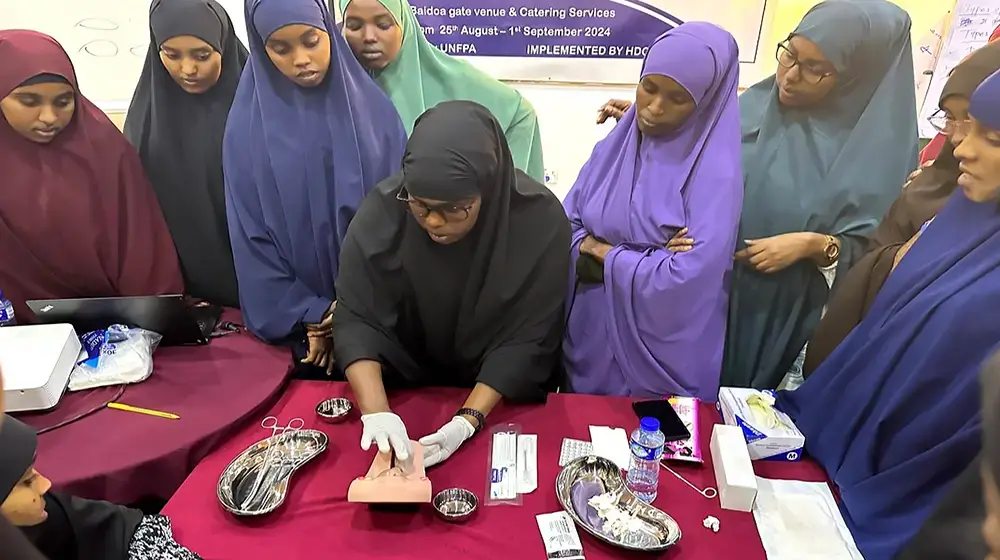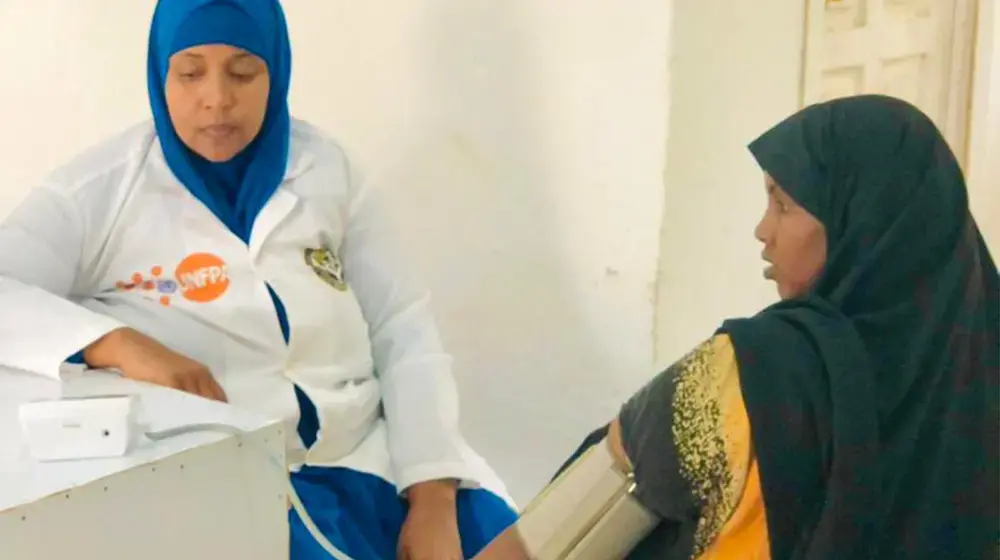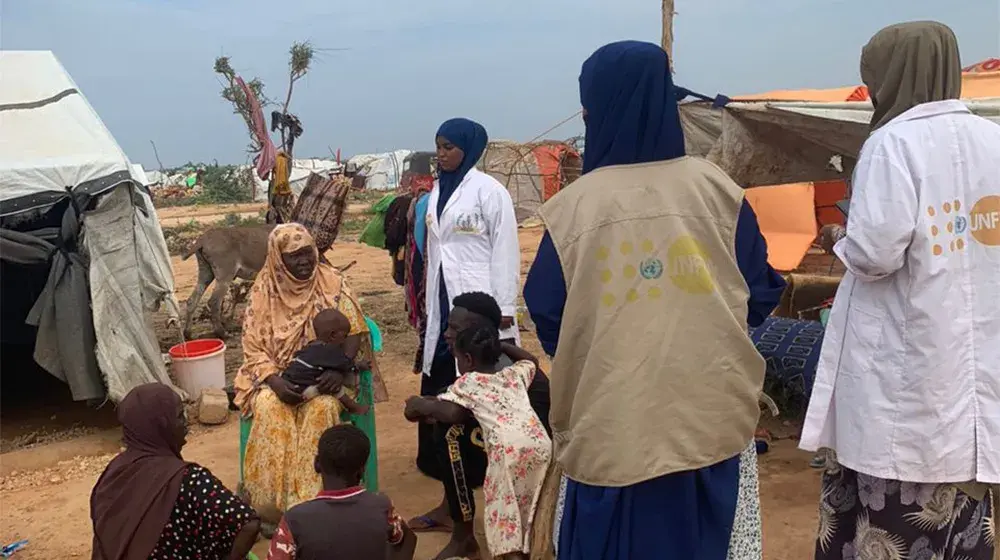Amina Hassan, 17, from Mogadishu, has just gone back to secondary school. She dropped out in February 2020 as she did not feel comfortable attending classes while having her monthly periods. “I absconded a lot from school every time I was menstruating, and I could not catch up, so I decided to quit. I could not afford sanitary pads, so I had to stay home for fear of being embarrassed if I stained my clothes,” she says.
Amina comes from a poor household. Her father passed on when she was only ten years old. Amina’s mother is the sole breadwinner; she sells pots and plates in the streets and barely makes enough to feed her family; Amina has three siblings aged between 11 and 16.
After hearing of a menstrual hygiene campaign being carried out by the Youth Peer Network targeting schools, universities, orphanages, and camps for internally displaced persons, the teenager went back to school. The campaign started in March 2021.
“I am now back in school and will stay until I finish. I received a pack of reusable sanitary pads, and they will last for a long time,” says Amina, sounding contented.
The majority of young girls in the Somali capital have missed classes during their menstruation period affecting their performance in school. Many girls and women across the country suffer from period poverty; they lack access to basic and essential feminine hygiene products such as sanitary pads. Lack of adequate sanitary hygiene products forces some girls to use unhygienic materials, potentially increasing urogenital symptoms and infection. Some end up using leaves from trees, old cloth and socks and old insides of mattresses and newspapers.
With support from UNFPA Somalia, the Youth Peer Network has carried out a campaign on sexual reproductive health for young people. Menstrual hygiene is among the priority areas being covered.

distribution of sanitary packs
“We aim to eradicate the lack of menstrual hygiene products, and we have distributed reusable sanitary pads to many vulnerable girls for use during their periods, which allows them to stay in school,” says Mr. Mohamed Arshad Ibrahim, a peer educator with the Youth Peer Network in Mogadishu.
“Many young men we work with also advocate for good reproductive health of young girls in our communities. We are promoting transparency so that issues like period poverty are acted upon. No subject is taboo for us to discuss, and this includes menstruation and sexual health of young women and men,” says Mr. Ibrahim.
Peer educators on the campaign also provided information on different sexual and reproductive health topics to the girls. “A total of 2,116 adolescent girls have since benefited from packs of reusable sanitary supplies during the campaign,” Mr. Ibrahim says.
The campaign has so far been carried out in several schools and universities, Bondhere Girls Orphanage Center, Abdiaziz Youth Centre, Wajeer IDP Camp and Garasbaley IDP Camp.
UNFPA Somalia Programme Coordinator for Youth and innovation Ms. Fatuma Kuno Muhumed says UNFPA prioritises the right to education since the lack of a safe place or ability to manage menstrual hygiene, as well as lack of medication to treat menstruation-related pain, can all contribute to higher rates of school absenteeism and poor educational outcomes. “Some studies have confirmed that when girls are unable to manage menstruation in school adequately, their school attendance and performance suffer,” she says.
Muhumed also says it is crucial to uphold the right to health for women and girls not to experience negative health consequences when they lack the supplies and facilities to manage their menstrual health. She says that menstruation stigma can also prevent women and girls from seeking treatment for menstruation-related disorders and pain, adversely affecting their enjoyment of the highest attainable standard of health and well-being.
“Menstrual hygiene management is often overlooked, many girls lack the necessary supplies to go on with their day to day life, at UNFPA we pride ourselves in ensuring dignity for vulnerable girls,” says Muhumed, adding: “we’re also reaching women and girls directly with menstrual supplies and safe sanitation facilities and distributing dignity kits, which contain disposable and reusable menstrual pads, underwear, soap and related items.
UNFPA Somalia also helps to improve the safety of toilets and bathing facilities in displacement camps by working with camp officials, distributing flashlights and installing lights. “We also provide support towards national health systems, which promote menstrual health and provide treatment to girls and women suffering from menstrual disorders,” says Muhumed.
Poverty and humanitarian crises can limit women’s and girls’ access to culturally appropriate menstrual supplies and safe, private washing facilities. Vulnerable women and girls can also face inadequate access to secure bathing facilities and menstrual supplies – including those in settlements for IDPs, refugee camps, impoverished school systems and prisons.
Gender inequality, extreme poverty, humanitarian crises and harmful traditions can all turn menstruation into a time of deprivation and stigma. Over a woman’s lifetime, she could easily spend three to eight years menstruating, during which she might face menstruation-related exclusion, neglect or discrimination.
UNFPA Somalia also supports and educates community health workers who can provide care for and information about menstrual health. This includes promoting adolescent- and youth-friendly health services, which can help girls and young women better understand and care for their bodies.
---Pilirani Semu-Banda





